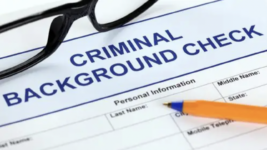How Can I Check if I Have a Criminal Record?

In recent years, the requirement for character and criminal record checks has been rising, as business owners across a range of industries and professions become reluctant to employ those whose previous criminal convictions could give rise to reputational damage and other problems.
Some businesses and government departments now require employees to conduct criminal record checks both before their engagement and at regular intervals during their employment.
Applying for a New South Wales criminal record check
A criminal record check – which is known as a National Police Check – can be applied for through the New South Wales Police Force via the online community portal, or through the Services NSW website.
Anyone over the age of 14 years can apply for a criminal record check.
Regardless of which state or territory you apply for a criminal record check, the information used to produce a report is gathered nationally.
Disclosure of information and criminal records
There are a number of laws determine the nature and extent of information that is disclosed in a criminal background check.
In New South Wales, the main pieces of legislation that regulating such disclosures are the Criminal Records Act 1991 (the CRA) and State Records Act 1998.
While the first piece of legislation sets out what can be disclosed, the latter requires, among other things, that New South Wales Police Force does not destroy, delete, remove, or expunge information about prosecuted charges in our state.
A criminal record check is an official document. It will list all of the criminal offences for which a person has pleaded or found guilty.
The could include such offences as:
- Assaults,
- Property and financial offences such as larceny and fraud,
- Drug possession, supply, manufacture or importation,
- Sexual offences, and
- Major traffic offences such as drink or drug driving, reckless driving and driving whilst suspended or disqualified.
Specific information that will come up for a criminal record check includes all “disclosable court outcomes” including:
- “unspent” convictions for criminal offences (including ‘major traffic offences’ such as drink driving and driving whilst disqualified),
- unexpired good behaviour bonds for findings of guilt with no conviction (eg ‘section 10 bonds’ (now conditional release order without conviction) which have not finished,
- outstanding criminal charges, and
- unfinalised criminal court proceedings.
No criminal conviction recorded
A frequently asked question is whether an expired bond for a finding of guilt without a conviction (eg a section 10 dismissal or conditional release order) is a disclosable court outcome. The answer is ‘not normally’ – it should not come up on an NPC; see section 8(4) of the CRA.
However, there is an exception to this general rule. Under section 7 of the CRA, certain ‘convictions’ are not capable of being “spent” (ie of lapsing). These offences are listed later in this article.
What if I do have a criminal record?
Most criminal records are permanent and you’re not allowed to have them removed. They will most definitely be disclosed during a criminal record check.
Depending on the crime, the conviction may be removed from your record after a period of crime-free time.
The waiting period in New South Wales and for commonwealth offence is a period of 10 years for adults. Minor offences may be cleared earlier – you have to apply, and it’s best to seek professional advice about how this process works. For juveniles (children and young adults under the age of 18), the period is three years.
Spent convictions
Under the NSW Criminal Records Act, all convictions (or findings of guilt, as under section 5 of the CRA a ‘conviction’ includes a finding of guilt) except those:
(a) for which a prison sentence of more than 6 months was imposed,
(b) for sexual offences,
(c) imposed against bodies corporate, and
(d) otherwise prescribed by the regulations.
‘Sexual offences’ include those under the following sections of the Crimes Act 1900: 61B-61F, 65A-66D, 66F, 73, 74, 78A, 78B, 78H, 78I, 78K, 78L, 78N, 78O, 78Q, 79, 80, 91A, 91B and 91D-91G, and under section 5 of the Summary Offences Act 1998.
Under the Criminal Records Act, once a person’s criminal conviction is spent, there is no requirement to disclose this information to anyone, for any purpose.
If information about a spent conviction is disclosed to anyone other than the person it belongs to without lawful authority to do so can face a maximum penalty of $5500 or imprisonment for 6 months, or both.
There are now a number of private companies which undertake criminal record checks. The information they use draws on the same national database that NSW Police use – they are also bound by the same legislation when it comes to the disclosure of information.
Criminal records and travel
A criminal conviction may affect your ability to travel overseas, depending on factors such as the type of criminal offence, the penalty that was imposed, how long ago it occurred and other relevant factors.
The rules relating to travel visas are set and regulated by the destination nation, and can be check on the relevant government website, as well as Australia’s own Smartraveller and Department of Foreign Affairs websites, both of which have extensive information about travel and work requirements for foreign countries.
Some countries will consider a declaration to be sufficient, while others will require a state police check, or a national check by the Australian Federal Police.







